We demand quite a lot from the kitchen countertop. A good countertop material should have a long lifespan, be heat- and stain-resistant and at the same time, be stylish enough to complement our interiors. In fact, the kitchen countertop is probably the most hardworking surfaces in the home. While most countertop materials are engineered to withstand harsh conditions, it requires consistent effort to extend its lifespan. Here are some tips on how to maintain 6 of the most popular kitchen countertop materials.
Natural stone
The aesthetic appeal of natural stones is incomparable; marble and granite are popular choices for homeowners looking for a touch of elegance and grandeur in their kitchen.
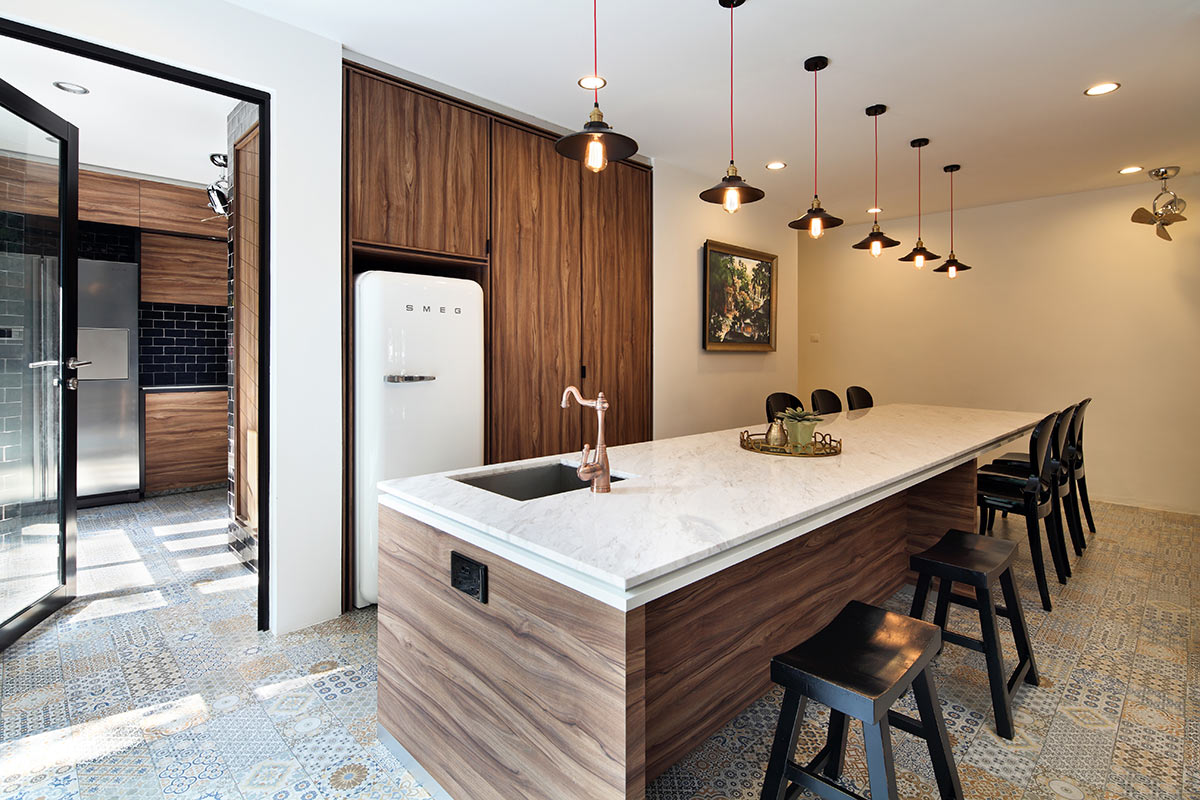
Image credit: The Scientist
Natural stones literally breathe –it is extremely porous if untreated. Homeowners will have to whip out their trivets and adopt a clean-as-you-go approach. Periodic stone sealing will form a protective layer for water resistance and bacterial build up.
In the mean time, day-to-day maintenance demands tender care. Use only gentle detergents as even organic lemon juice and vinegar can be damaging. Occasionally, wipe with a mixture of three parts detergent and one part rubbing alcohol for a deeper cleanse. Excessive use of normal cleaning agents will dull the surface, but tougher stains can be solved with a watered down solution of bleach.
Engineered quartz
Pure quartz stones are extremely scratch resistant but brittle, making it too vulnerable to use. Blending a mixture of crushed quartz with a malleable polymer can help make countertops shock resistant. This combination gives you the best of nature’s beauty and the durability of man’s creation.
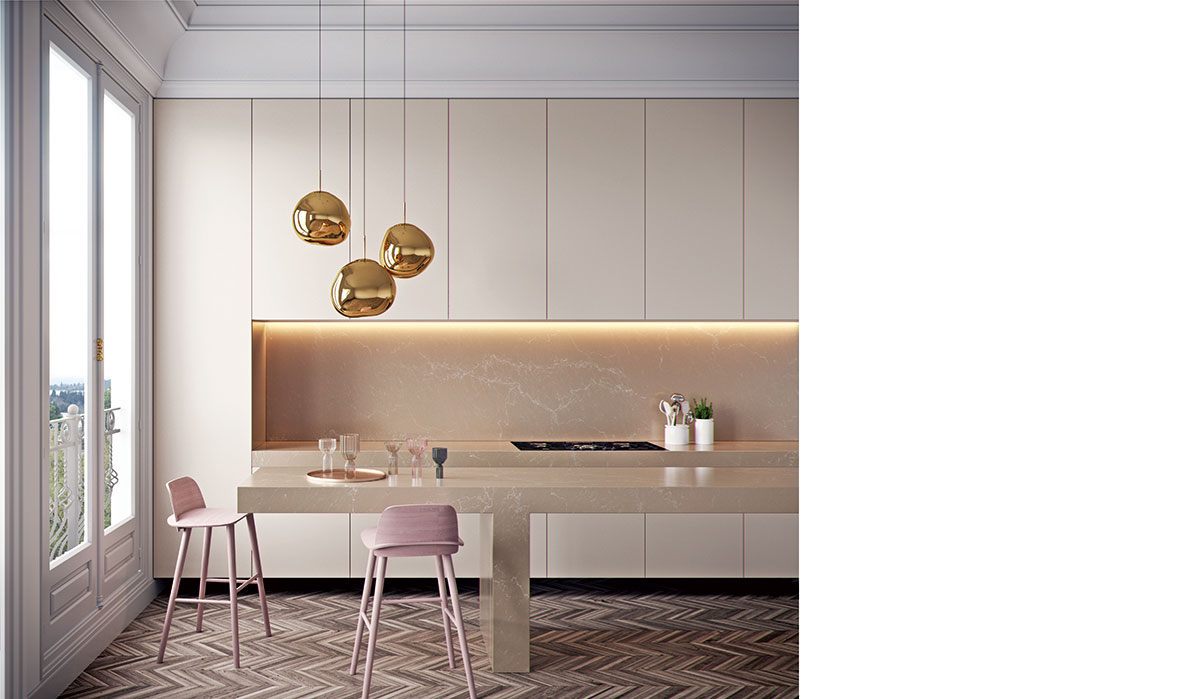
Image credit: Caesarstone
Quartz is a hardy material and better suited for the kitchen – a normal wipe down with the usual cleaning agent won’t dull its shine and you are more likely to blunt knives before scratching the countertop. Pure quartz can withstand extreme heat but with the introduction of polymers, it’s better not to risk it with pots hot off the stove.
Solid surface
The homogeneous material has the ability to adhere to all edges of the kitchen sink – customise a slab for your kitchen to achieve a fluid look. With advanced technology, it’s possible to have any design printed on a solid surface; the typical gel finish makes a convincing natural stone look.
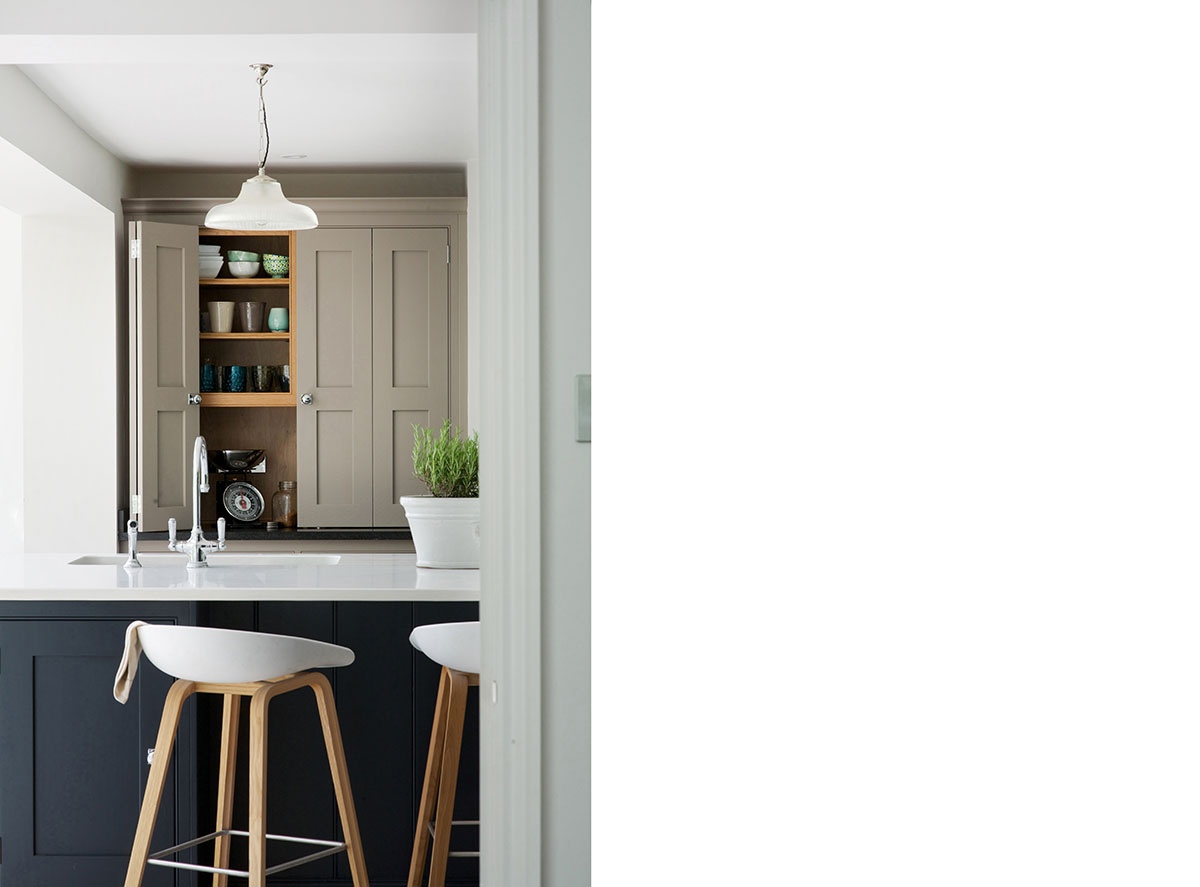
Image credit: Wye Valley Railroad
The seamless design is chic and hygienic, there’s practically no pores or corners for germs to build up. Normal cleaning agents will suffice for day to day cleaning, it’s one of the lower maintenance countertops for a wallet-friendly price!
KompacPlus
Every layer is made of paper pulp infused with resins and treated at high temperatures and pressures before it’s completed with a realistic wood finishing – the material can be mounted onto other surfaces so your cupboards match the counters.
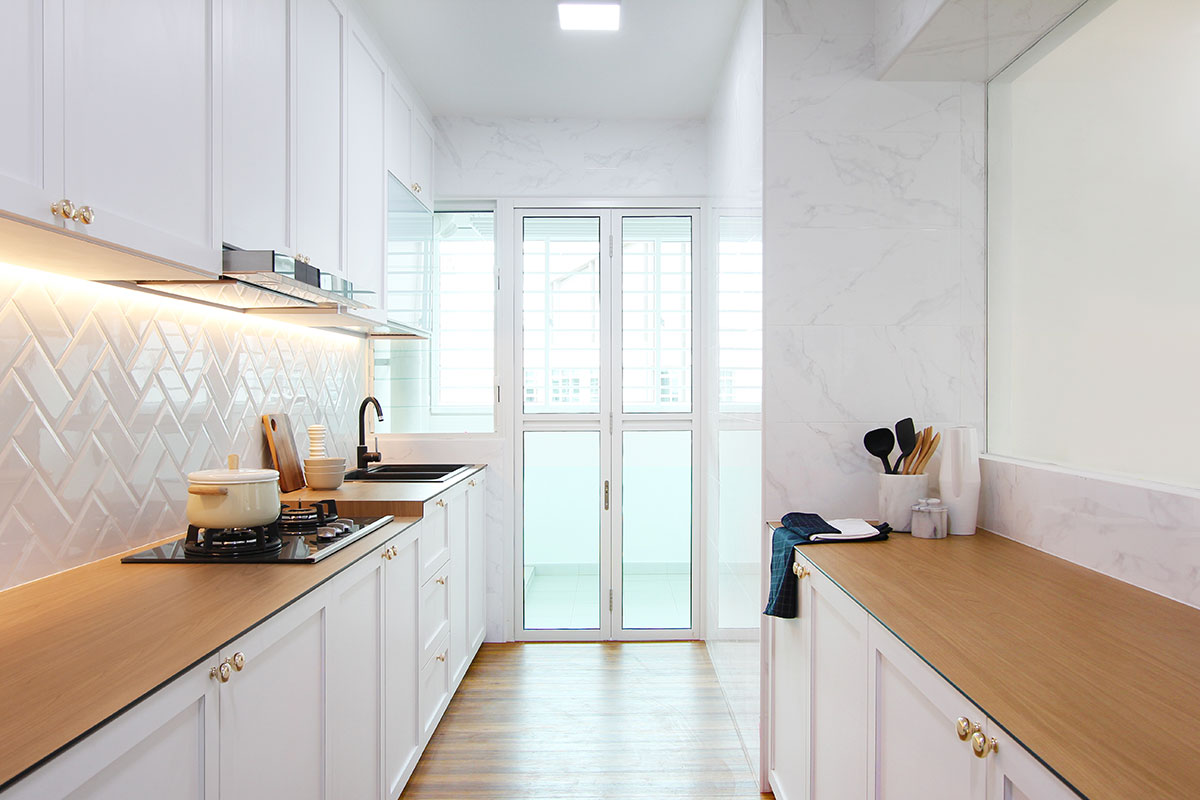
Image credit: KompacPlus
Wiping with water and detergent or a mild cleaning agent can go a long way. For the occasional tough stain, nail polish remover will do the trick! Although it’s been treated for waterproofing, try to keep your countertops dry to extend its durability.
Laminates
A composite of paper covered with a protective layer of melamine resin, laminates come in a wide variety of designs – a popular choice for those on a budget who crave a natural stone or wood finish.
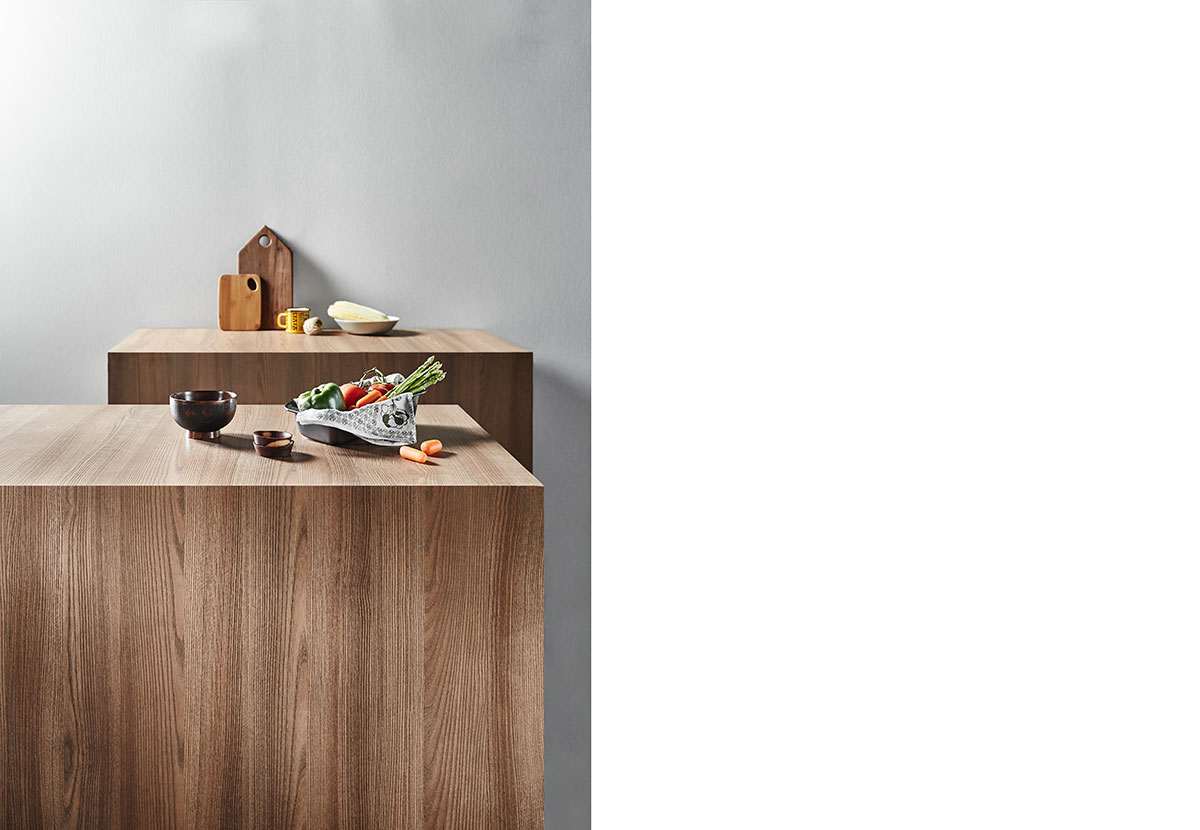
Image credit: Greenlam
Despite being scratch- and water-resistant, laminates will warp if the countertops experience “ponding” or are exposed to direct heat. Remember to use trivets and keep the kitchen tops dry with a soft cloth. Periodically, clean with a vinegar solution and seal with lemon oil to maintain its original lustre.
Tiles
Old school tiles are making a comeback with a modern twist – the various combinations of textures and patterns provide flexibility in design and will suit any budget.
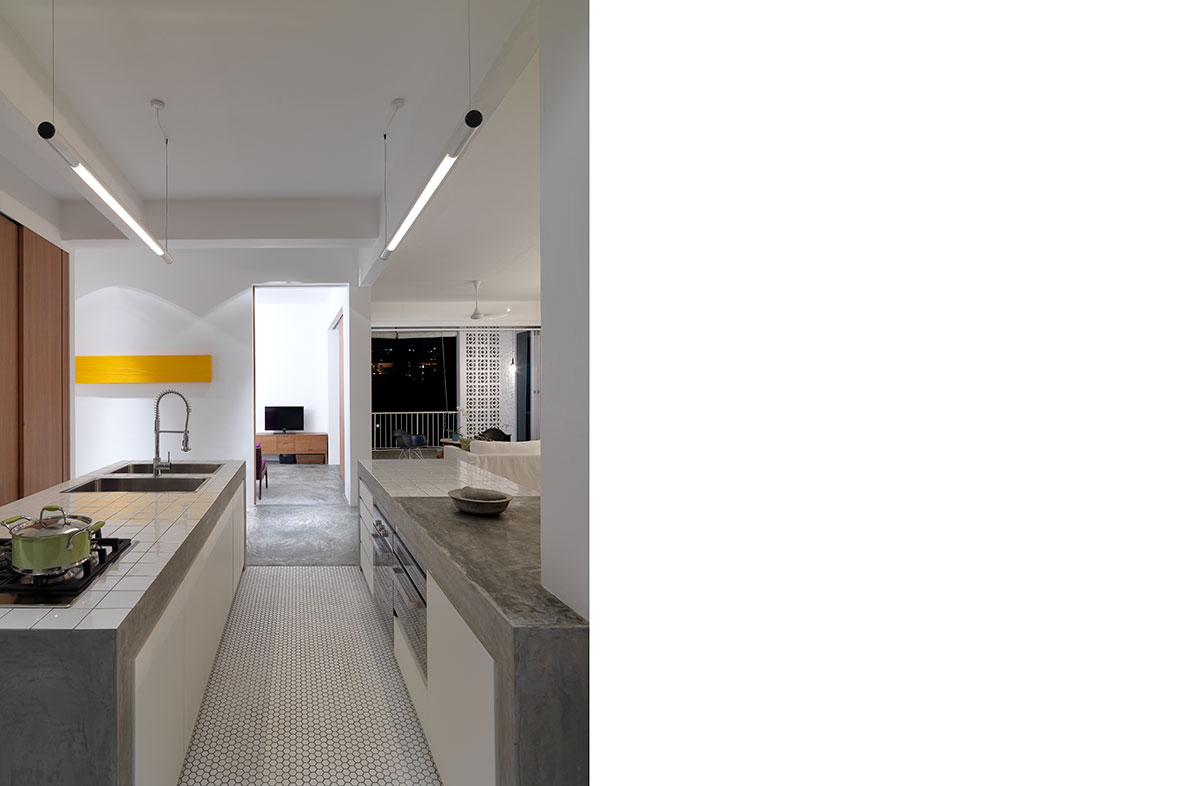
Image credit: three-d conceptwerke
Unless you’ve opted for untreated tiles, which require periodic sealing, a typical cleaning agent and wet cloth will suffice for glazed ones (those sealed with melted glass). Put as much thought into selecting the grouts between each piece of tiles as they tend to trap dirt and turn black. The tedious cleaning process involves getting down and dirty with a toothbrush, vinegar and baking powder. Save on cleaning time and cost of sealants by choosing a fusion pro grout over the typical cement option.
This was adapted from an article originally published in the November 2017 issue of SquareRooms.



